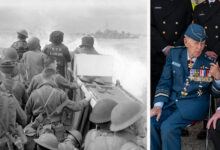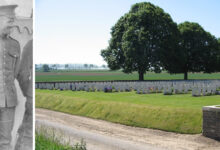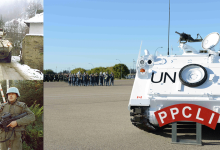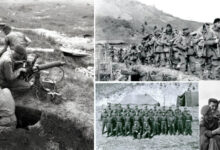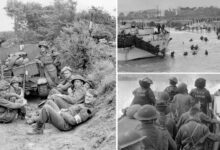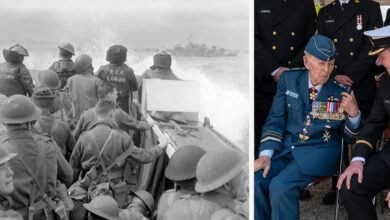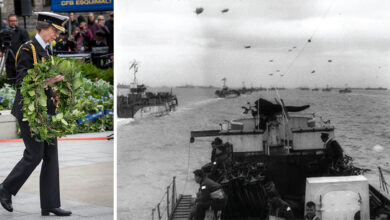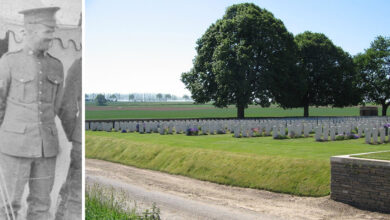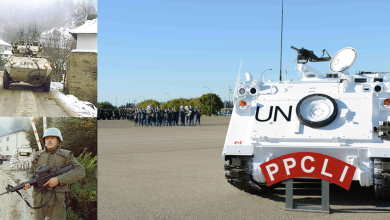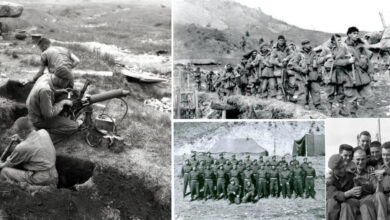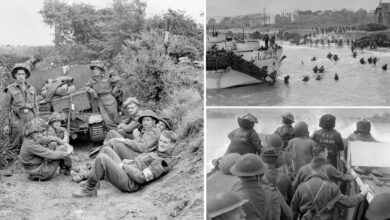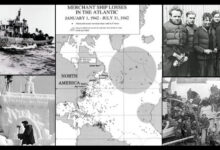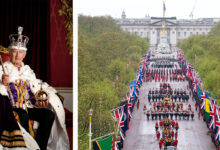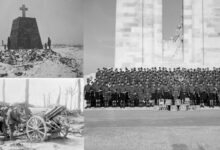History
Remembering the Netherland’s Liberation 77 years later.
Above images: Left, Canadian Scottish Regiment Universal Carriers navigating mud and water in the Breskens Pocket, 28 October 1944 Canada. Dept. of National Defence/Library and Archives Canada/PA-131252. Right, see below.
The Netherlands and Canada have a storied and powerful relationship that stems from Canada’s liberation of the European country 77 years ago during the Second World War.
During the Second World War, the Netherlands became occupied by Nazi Germany. However, between 1944 and 1946, the Allies liberated several Dutch cities.
On May 5, 1945, an official agreement was signed on the capitulation of German forces in the Netherlands.
The Dutch still celebrate this day every year in what is known as Bevrijdingsdag, or Liberation Day.

Donald I. Grant/Canada. Dept. of National Defence/Library and Archives Canada/PA-130059
Canada’s Role
Canada played a vital role in the liberation of the Netherlands. After landing in France and taking part in D-Day, and the ensuing Normandy campaign, Canadian soldiers, advanced east, eventually making their way to the Netherlands.
According to the Canadian War Museum, “In October and November 1944, Canadian and Allied forces defeated the Germans blocking the Scheldt Estuary. This allowed the liberation of southern parts of the Netherlands and gave Allied ships access to the vital port of Antwerp, Belgium. After pushing into Germany in early 1945, Canadian and Allied forces liberated large parts of the Netherlands in April and May.”
After nearly five years of German occupation, in April 1945, the First Canadian Army liberated much of the Netherlands and provided food and medical aid to starving people.
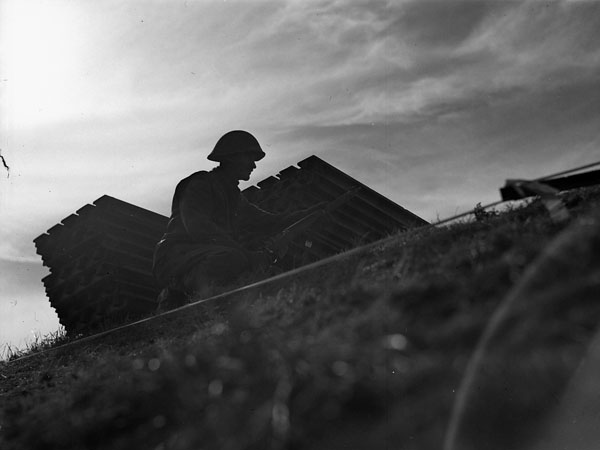
Nazi Invasion
In fact, following the Nazi Invasion of the Netherlands in May of 1940, the Dutch Royal Family and Queen Wilhelmina were spirited out of the country to rule in exile from the United Kingdom.
Princess Juliana brought daughters Princess Beatrix and Princess Irene to the safe harbour of Canada in June of that same year. The family arrived by ship in Halifax before proceeding to Ottawa, staying at Stornoway. The house is now the official residence of the Leader of the Opposition.
While still in Canada, the exiled Princess Juliana gave birth to her daughter Princess Margriet at the Ottawa Civic Hospital on January 19, 1943. The Canadian government temporarily declared the hospital extraterritorial so the princess would hold exclusively Dutch nationality rather than dual nationality.
As a show of gratitude for her stay in Canada and the Canadian soldiers’ role in the liberation of her homeland, Princess Juliana presented to the people of Canada a number of gifts over the years.
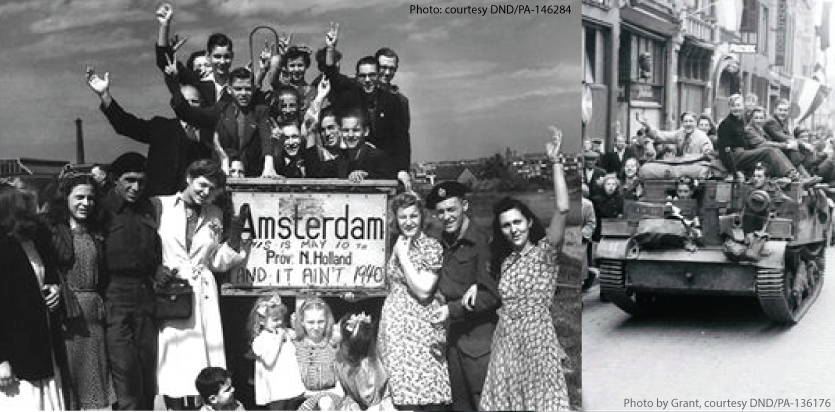
Social Impact
The impact of this liberation is still felt through the warm relationship these two countries enjoy to this day. In fact, the liberation led to many Dutch and Allied military personnel meeting and marrying during and after the war. According to the War Museum, some 2,000 women married Canadian soldiers and came to Canada with more than 400 children.
One of these women, whose story has been documented by the Canadian War Museum, was Nell Greefkes.
She, and her family, faced many years of harsh occupation by the Germans, and in a 1999 interview, she stated, “The things I had to do to keep my family alive ….”
She then married Canadian soldier Cecil Ringguth and came to Canada with him. They went on to have six children



